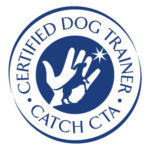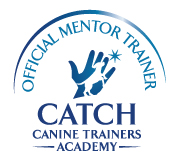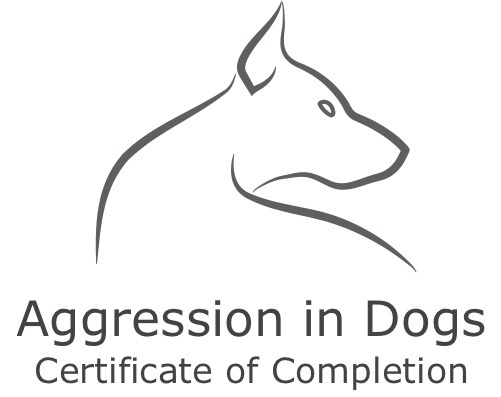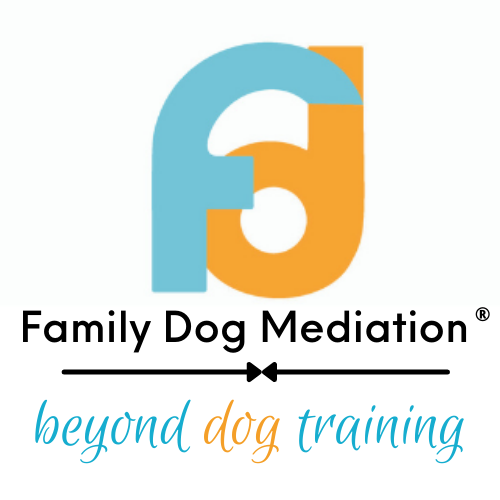About
Rebecca M. Hilbert, CPDT-KA, FDM, CCDT, MBA
Owner, Trainer and Family Dog Mediator
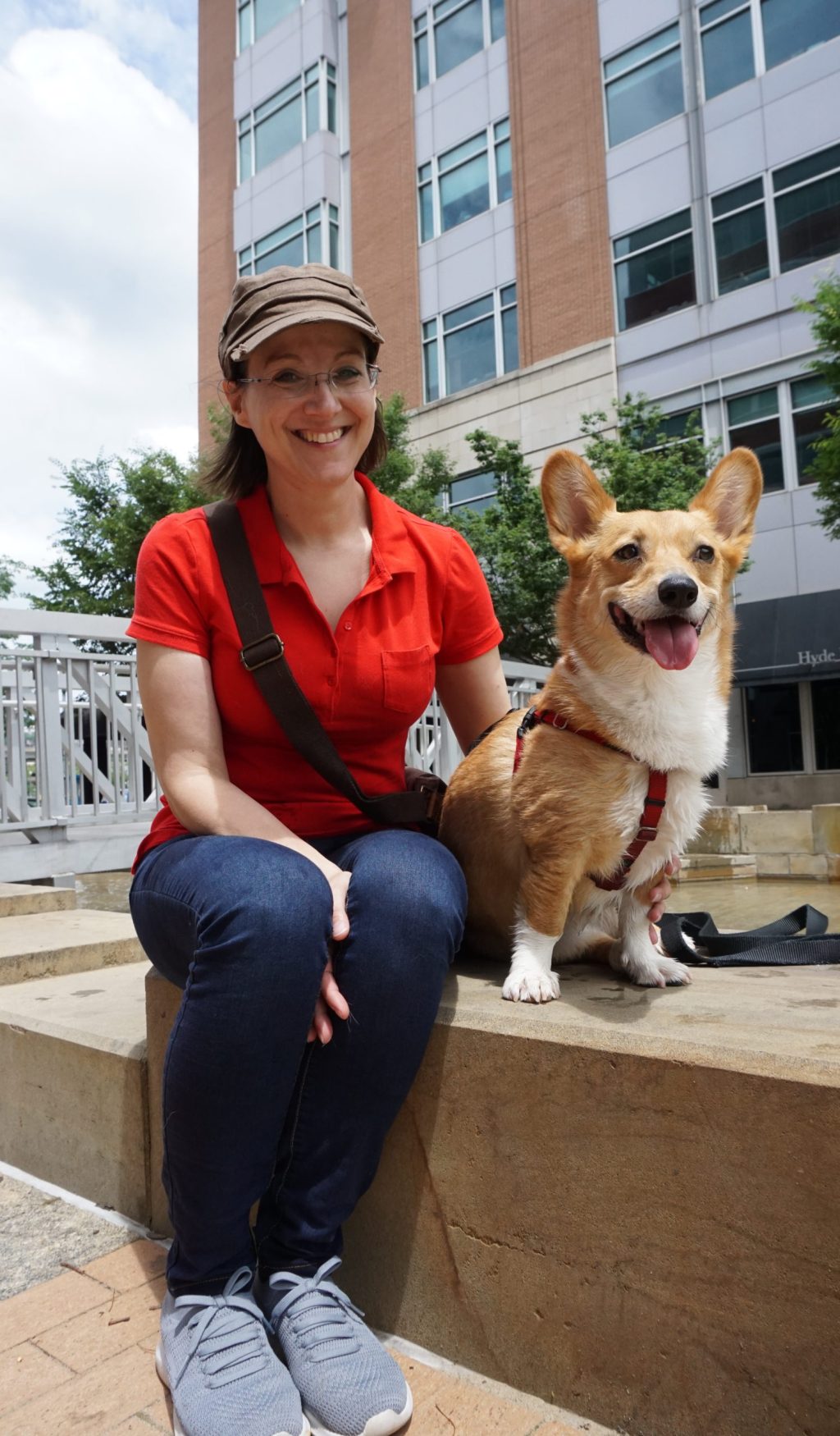
I began my journey into dog training in 2017 when my adolescent corgi, Bunsen C. Honeydew, began to display aggressive behavior in human directed resource guarding and leash reactivity. I finally found hope in a local Pittsburgh based positive reinforcement trainer. What I experienced with the positive reinforcement trainer and training methods would change the trajectory of my life. In 2018, I left behind two decades in corporate America to fully devote my time and energy into my education in dog training: CPDT-KA through the Certification Council for Professional Dog Trainers; Master Program with CATCH Canine Trainer academy; Master Program with Aggression in Dogs; Family Dog Mediator.
What is family dog mediation?
Family dog mediation changes the way we look at dogs and the behavior “problems” they are experiencing. It looks beyond training and instead of putting focus on the “how” of “fixing” the behavior, it explores the more important question of WHY is the behavior happening; it explores the root cause. We find the why by exploring the dogs L.E.G.S.:
- Learning – the dogs experiences and education
- Environment – the many aspects of their external world
- Genetics – the DNA that designed them both inside and out
- Self – their unique interior world (health, development, age, sex and individuality
Looking at the L.E.G.S. model of behavior enables us to take a more dog centered and empathetic approach. It enables us to stop pathologizing the dog and look more critically at what the dog is and why they may be struggling to adapt to the human centric world in which they have found themselves in.
By looking at the dog as an individual, we explore why your dog is doing what they are doing, how we can help them cope better and possibly thrive in their modern lifestyle by better meeting their needs and developing a mutually respectful and compassionate relationship with them.
meet my team
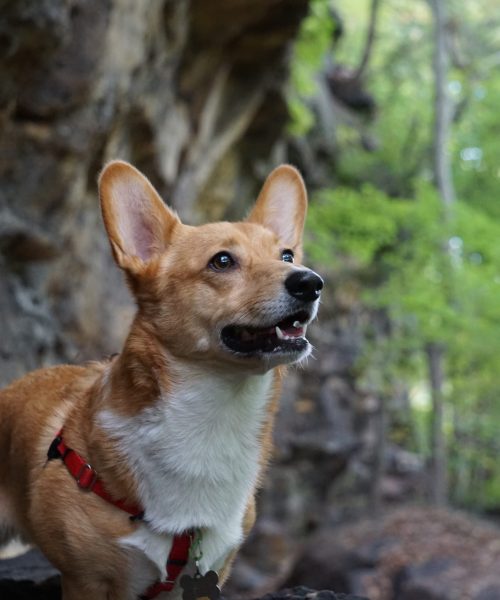
meet Bunsen C. honeydew
My corgi, Bunsen C Honeydew is the reason this entire journey began. At around seven months of age he began showing resource guarding and leash reactivity issues in addition to him displaying a strong aversion to being touched. During these times I admit that I felt amazingly hopeless and desperate as I found myself in foreign territory.
We began working with a local positive trainer and my eyes quickly opened up to the role I was playing in this situation. As I learned and did better, not only did he learn and do better but our relationship dramatically changed. We became a Team!
Working the training plans laid out for us, I learned how to help him make better associations and in turn to make better choices. His overall behavior began to positively change. I learned to hear what he was telling me by reading his body language and more importantly, I began to listen. I learned that dogs have the right to consent and if he was only comfortable enough to be near me and not pet, I respected his space. I learned how to set him up for success by adjusting the environment to meet him where he was. I will never forget the first time we were passing a dog and he choose to look to me for support rather than reacting. But nothing was more impactful then when he began to come to me and nudge my hand seeking attention; his respect and trust had finally been earned.
While he has been my greatest challenge, he is also my greatest reward and I owe so much to him. He gave me a new purpose in life. Today, he is an affectionate, energetic, confident boy that loves hiking, swimming, agility and fetch. But above all else he has become the single best teacher I could have had.
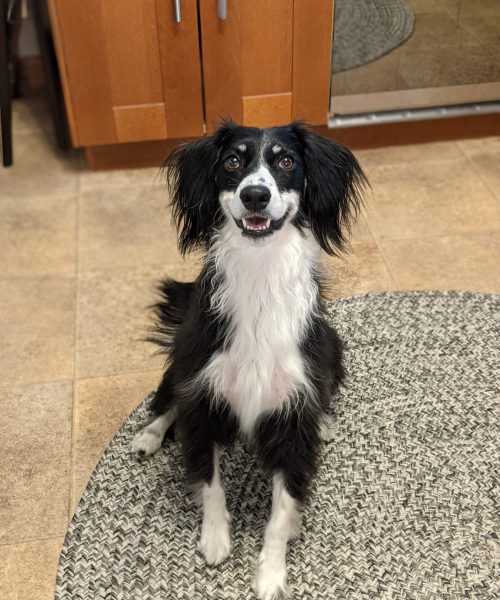
meet Lexi vaughn
In the fall of 2019, there was a humane investigation case in which 117 dogs were found living in one home. Lexi was one of them at a mere three months old. These dogs were brought to a local shelter where I was volunteering and all found their forever homes after being cleared for adoption. Lexi, however, kept finding herself returned. The last time she was returned, she was not handling shelter life well and I took her in as a foster.
In the shortest version possible, this little girl, with her baggage and all, wiggled her way into our hearts and she officially became part of our team in October 2020.
Her rough start coupled with the instability in the first year of her life, understandably yielded some behavior issues: house training, fear of novel experiences and strangers, fear of being handled, separation anxiety, poor leash manners, leash reactivity and being restrained for any reason elicited fear aggression.
Due to her fears, I have had to modify my training approach based on what she can handle. Using luring was not an option with her as hands coming toward her initially caused stress. So I shifted gears and began capturing and rewarding desired behaviors until trust was built. While our main focus has been on Cooperative Care in preparation of husbandry needs and vet care, she has made unbelievable strides in so many areas since she arrived. We can take loose leash walks and she looks to me rather than reacting to triggers; she can sit quietly beside me while I converse with a neighbor in the yard; while we are still building duration, she now seeks the comfort of her crate on her own when she needs a break. We have a way to go on some things but this girl, to me, is already a rock star!
Continuing Education & certifications
- L.E.G.S in Motion Conference 2023
- Family Dog Mediation 2023
- Pet First Aid/CPR Pro Pet Hero 2023
- Master Course – Aggression in Dogs 2022
- Aggression in Dogs Conference 2020, 2021, 2022, 2023
- Lemonade Conference 2020, 2021, 2022
- Cooperative Care by Deb Jones 2020
- International Dog Trainers Winter Summit 2020
